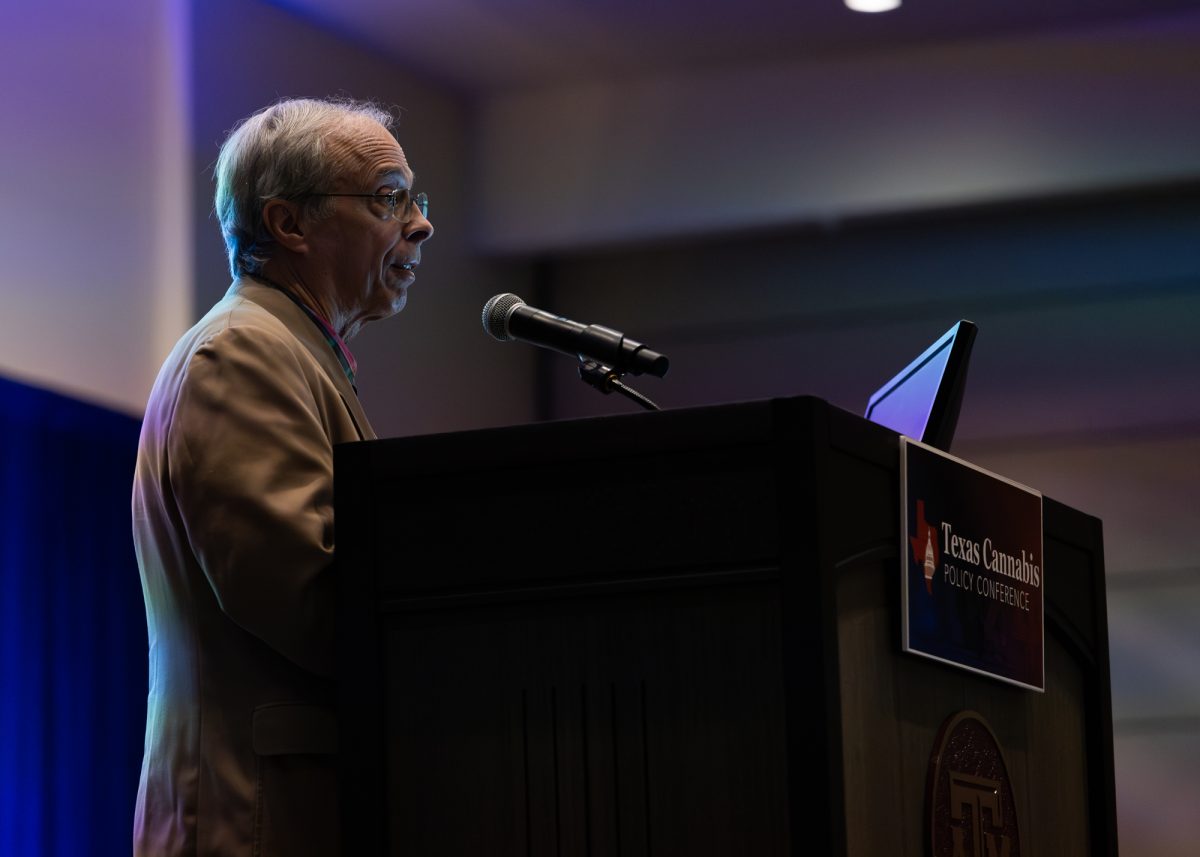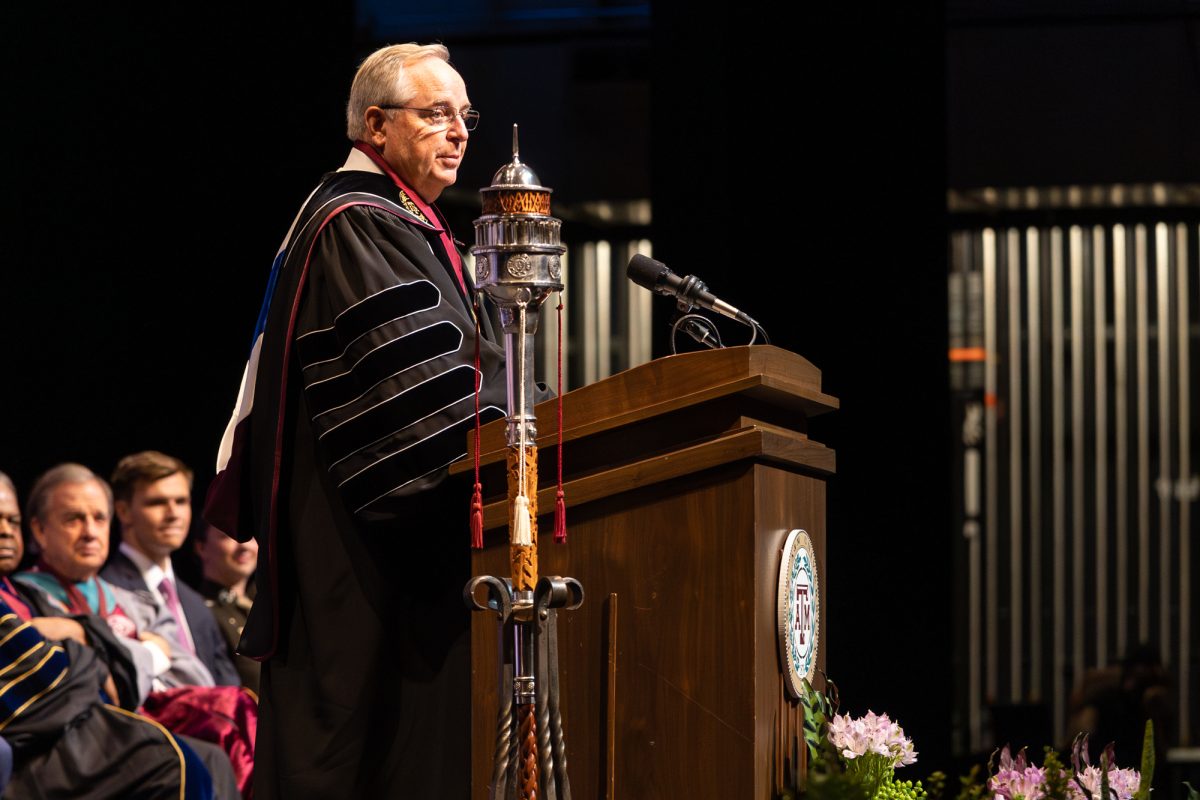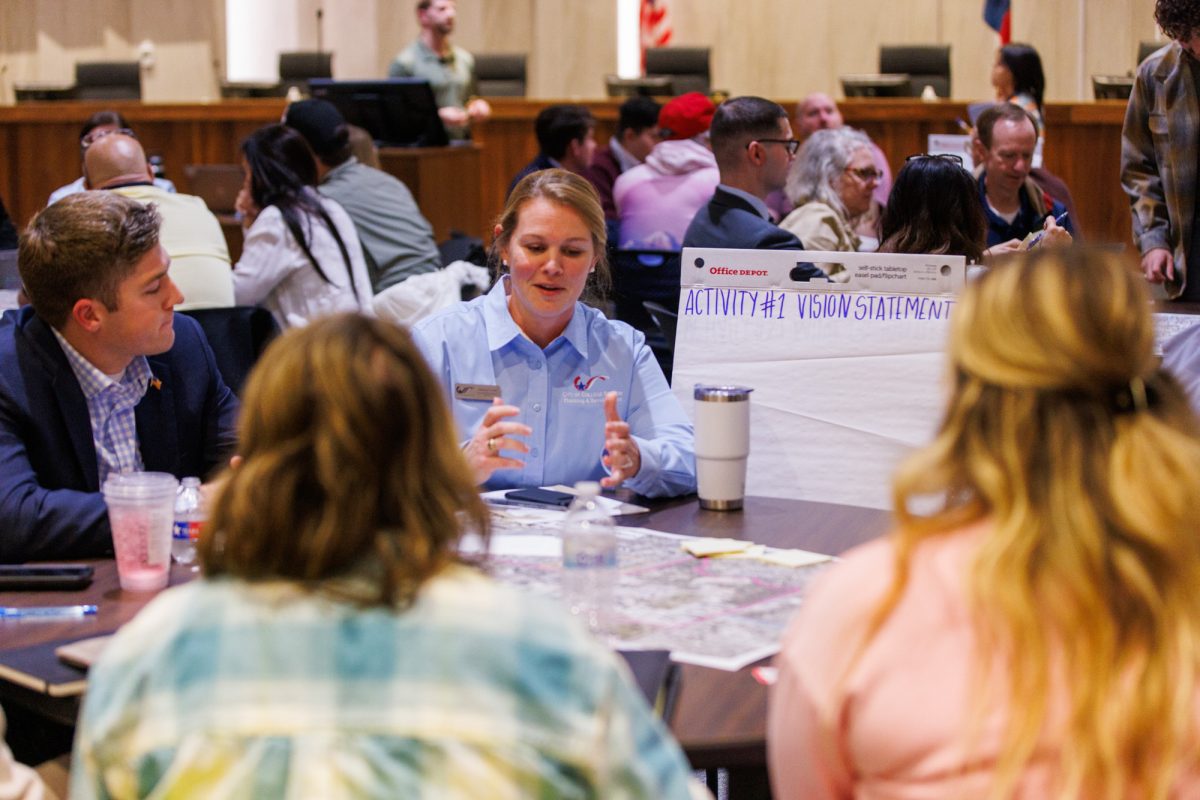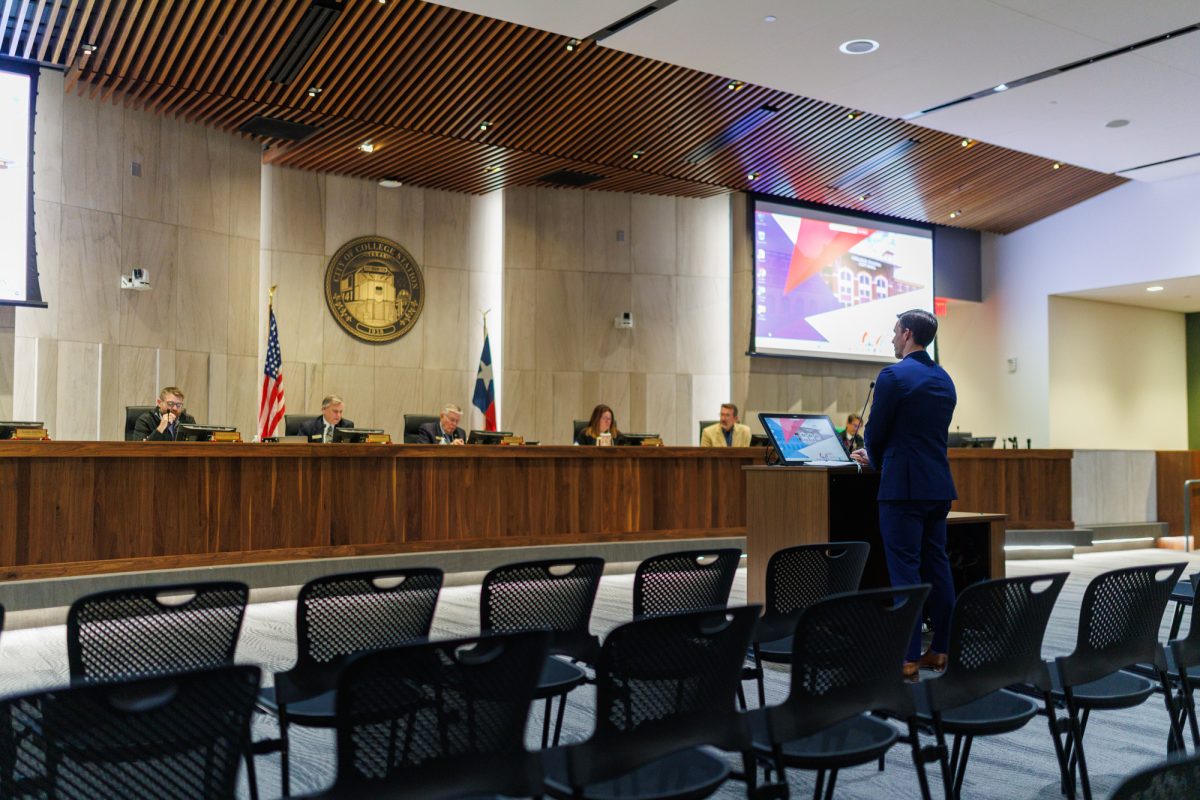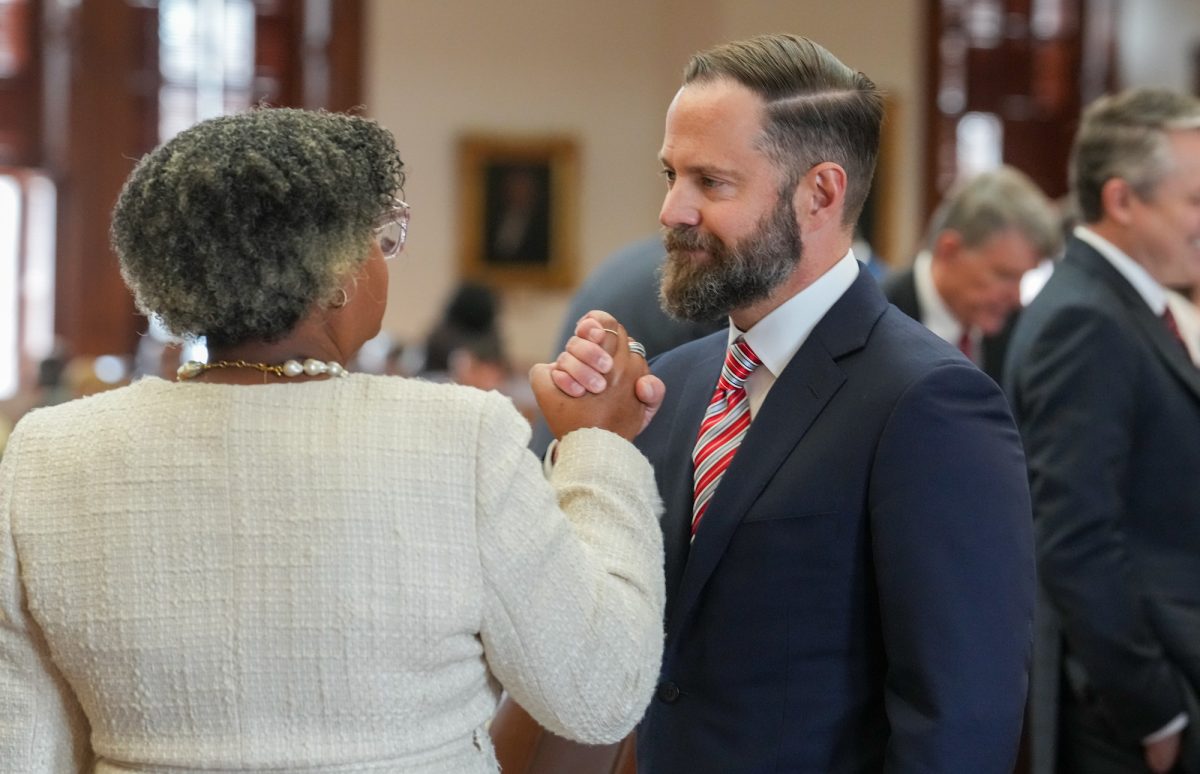The second Texas Cannabis Policy Conference was held on Friday and Saturday at the Memorial Student Conference and featured talks from a state senator, medical professionals and industry experts.
Sponsored by the Texas A&M Soil & Crop Sciences Department, the conference aimed to influence state policy on cannabis possession and use. Both federal and state laws classify marijuana as a controlled substance. In Texas, delivery and possession of it is a criminal offense in most cases.
Terrence Baugh, the community relations manager for goodblend, one of three licensed medical marijuana dispensaries in Texas, attended in hopes of raising awareness of the Compassionate Use Program, which allows Texans to use marijuana for medical purposes.
“[The conference] happens every two years, in line with legislative sessions … so that we can all align as a cannabis community here in Texas to see what policies are going to be changed, what are we looking for [and] what are we going to be asking for. And we make sure that there’s alignment between the factions because there’s the hemp side of things and the medical marijuana side of things,” Baugh said.
The conference featured State Sen. José Menéndez as a keynote speaker on cannabis regulation. Menéndez co-authored legislation to create Texas’ medical marijuana program in 2015 and serves on the State Affairs committee, which regulates the state cannabis industry.
“Our job is to provide the highest quality products for Texans all across the state to provide relief when they need it,” Baugh said. “There are over 150 different conditions that qualify you to take part in the medical marijuana programs, so we are trying to make sure that all Texans have access to it.”

Other conference attendees focused on the criminalization of marijuana and the impacts it has on Texans. Dr. Bryan Adinoff presides over the board of directors of Doctors for Drug Policy Reform, an advocacy group that opposes the criminalization of drugs and “the global war on drugs.”
“I come at this from more of a social justice perspective … I’m an addiction psychiatrist, so I’ve worked with addiction all my life,” Adinoff said. “We are unique in addiction — in that we criminalize the substance that causes the illness. We don’t do that for any other medical disorder.”
Current laws that penalize illegal possession or cultivation of marijuana depend on the amount found on the person. Those found possessing up to two ounces may face Class B misdemeanor charges.
“A number of people that are being incarcerated and arrested for these disorders are Black and brown people,” Adinoff said. “And in fact, almost exclusively, the reason we have these laws on the books in the first place is to disenfranchise and incarcerate Black and brown people.”
Students with A&M’s own cannabis programs spoke alongside professionals and industry experts. Clay Moore, a graduate student in Molecular & Environmental Plant Sciences, presented his research on how to improve hemp varieties in Texas. At A&M, he has collected over 120 varieties from breeders and growers in 14 countries to cross with the federally-complicit variety that is adapted to Texas heat.
Having completed his undergraduate degree in the spring, Moore is now looking to focus on cancer research. Certain types of cannabis compounds have been able to kill cancer cells in laboratories, but bringing this research to Texas has been challenging.
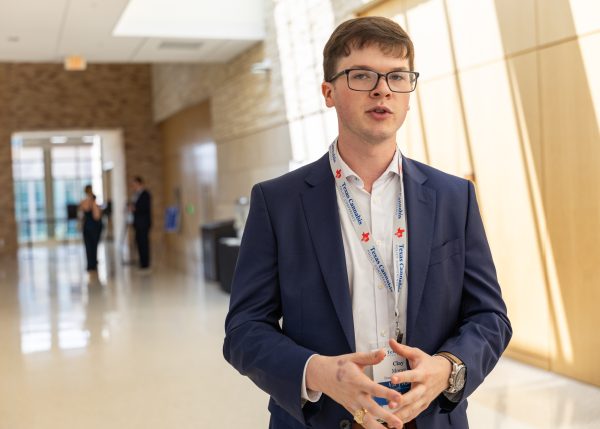
“I’m not able to do clinical research here at A&M because of current legislation,” Moore said. “We’re supposed to be opening up research, but legislators haven’t been doing a good job at that. There also needs to be more advocacy for opening that up, and we can all contribute to that.”
Many conference attendees spoke on how attitudes surrounding the use of cannabis have changed recently, with a handful of Texas areas, including A&M’s campus, voting to decriminalize the possession of marijuana or not enforce laws until a certain amount was reached.
“I think that the cannabis community in Texas is ripe and prime for more expansion, and that’s what this conference is about,” Baugh said. “How do we get the expansion that we’re looking for? And to make sure that we’re all unified, and we’re going to the sessions and we’re making our vote count.




